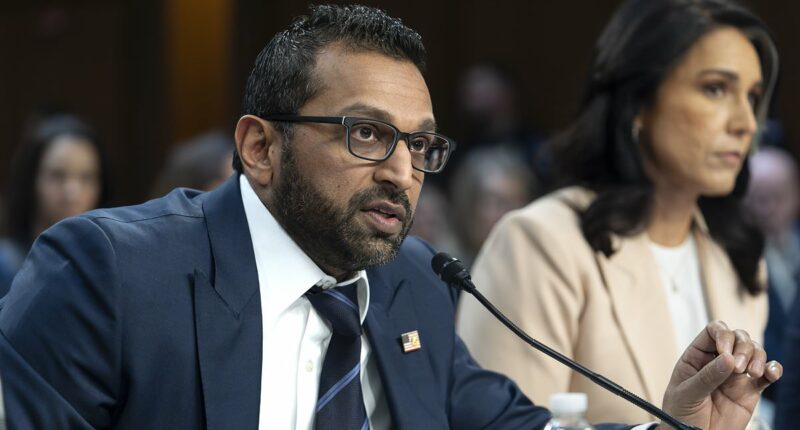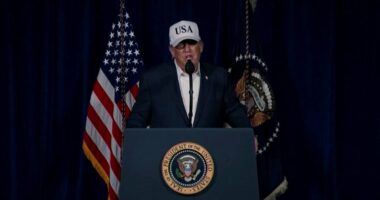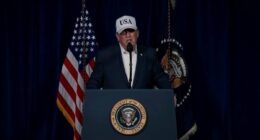Share this @internewscast.com

A stark division has emerged within the highest echelons of America’s national security as the FBI has emphatically communicated to Congress its disapproval of a proposal to transfer the nation’s counterintelligence leadership to the Office of the Director of National Intelligence (ODNI). According to a letter obtained by The New York Times, the FBI has cautioned lawmakers against broadening the powers of Director of National Intelligence Tulsi Gabbard. This proposal, which Congress ultimately rejected, would have significantly increased Gabbard’s authority, underscoring a growing rift among federal agencies.

Gabbard’s office had reportedly intended to advocate for these changes through another communication. However, the FBI’s letter contested Gabbard’s claims that the wider intelligence community supported her office taking a leading role in counterintelligence. This correspondence adds to the mounting evidence of tension between Gabbard and other intelligence agency leaders, notably FBI Director Kash Patel. Although unsigned, administration officials confirmed that Patel endorsed the letter before it was dispatched. The document articulates strong opposition, using terms like ‘vigorously disagrees with’ and ‘strong objection’ to describe the proposed shift in counterintelligence duties to Gabbard’s office.

The letter cautions that implementing one of these changes could inflict ‘serious and long-lasting damage to US national security.’ In a joint statement given to the Daily Mail, a spokesperson for Gabbard’s office stressed collaboration, stating, “The ODNI and the FBI are united in partnering with Congress to enhance our nation’s counterintelligence efforts to safeguard the safety, security, and freedom of the American people.” An intelligence community official also indicated to the Daily Mail that the FBI’s letter serves as a ‘preemptive response’ to an ODNI procedural document.

‘It was drafted as a part of interagency coordination. Deliberative process documents are not final products. Any time there is a disagreement in opinion across the intelligence community, ODNI denotes the discrepancy in final products and accounts for it in all materials before it reaches Congress or others in the Administration.’ According to officials familiar with the matter, the House proposal would effectively place all counterintelligence operations across the nation’s intelligence agencies under Gabbard’s control. Senator Mark Warner of Virginia, the senior Democrat on the Intelligence Committee and a longtime critic of Gabbard, called the plan to broaden her office’s authority ‘misguided.’

Since taking office, Gabbard has disbanded several major units under her supervision, including the teams focused on election security and the National Intelligence University. Daily Mail reached out to both Gabbard and Patel’s offices for comment. The FBI did not immediately respond. Joe Kent, a staunch Gabbard ally and head of the National Counterterrorism Center, ignited alarm within the FBI originally when he launched a probe into the death of activist Charlie Kirk.

Kent even went so far as to delve into the bureau’s own files, sources say, looking into whether Kirk’s alleged killer received help from a foreign power. Patel shut down the entire investigation involving Gabbard’s closest advisor, believing that the counter terror chief was overstepping by interfering with an ongoing FBI investigation. The Times spoke with supporters of Kent who claim he was doing his job by chasing down any leads to ensure no foreign groups were involved in Kirk’s death.

After Patel discovered Kent had gone through FBI case material related to the Kirk killing, a tense White House meeting was held to discuss the matter. A round table meeting between Patel, Kent, Gabbard, Vice President JD Vance, White House chief of staff Susie Wilies, and senior DOJ officials was held at the White House. Kent told administration officials that he was granted access to FBI files by a low ranking agency official. Trump administration officials were worried that Kent’s probe into foreign interference could provide ammunition to Robinson’s defense lawyers, who could then argue more than one suspect was involved in Kirk’s murder.









